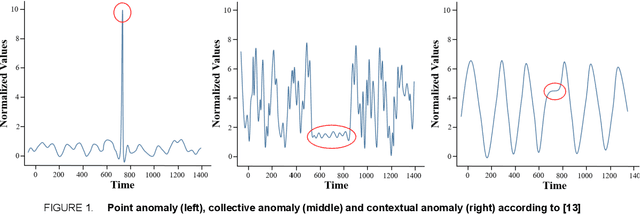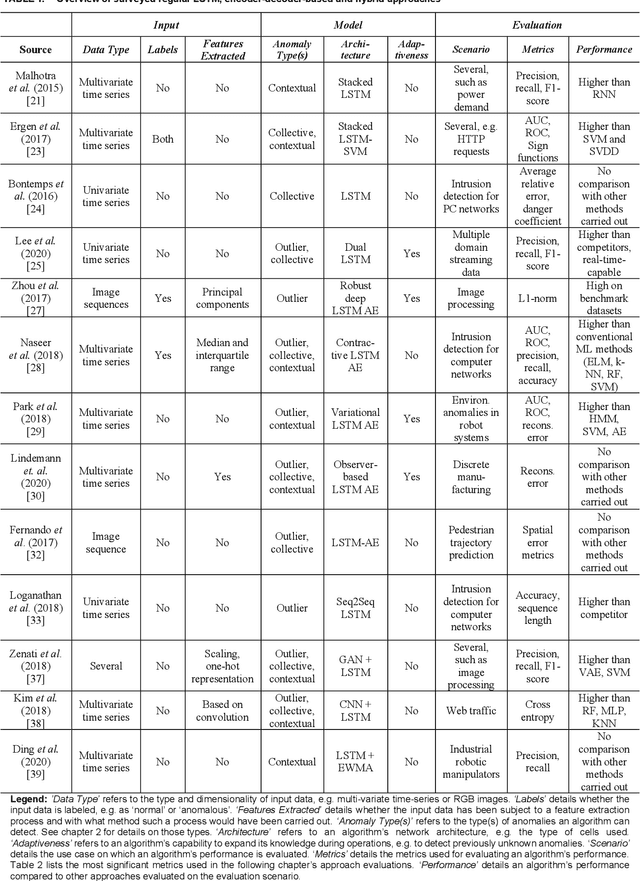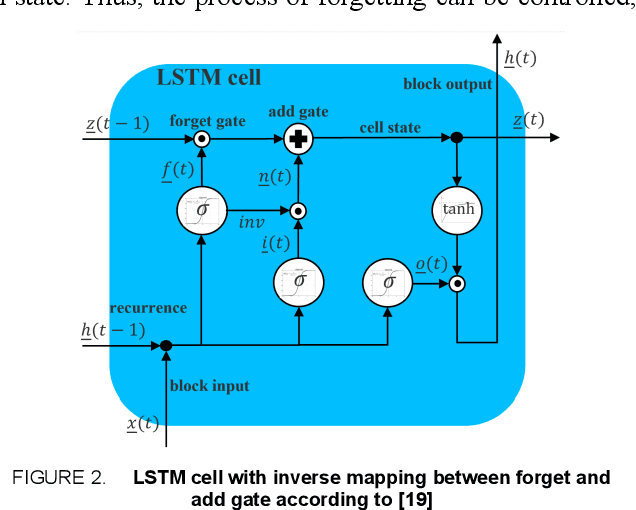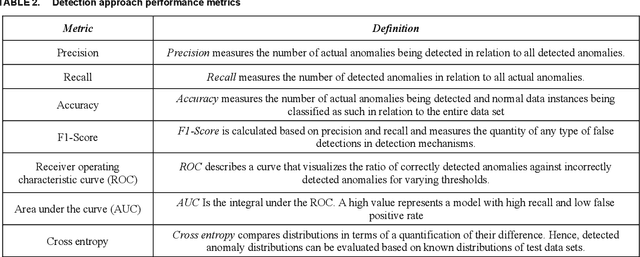Benjamin Lindemann
Enhancing an Intelligent Digital Twin with a Self-organized Reconfiguration Management based on Adaptive Process Models
Jul 07, 2021

Abstract:Shorter product life cycles and increasing individualization of production leads to an increased reconfiguration demand in the domain of industrial automation systems, which will be dominated by cyber-physical production systems in the future. In constantly changing systems, however, not all configuration alternatives of the almost infinite state space are fully understood. Thus, certain configurations can lead to process instability, a reduction in quality or machine failures. Therefore, this paper presents an approach that enhances an intelligent Digital Twin with a self-organized reconfiguration management based on adaptive process models in order to find optimized configurations more comprehensively.
A Survey on Anomaly Detection for Technical Systems using LSTM Networks
May 28, 2021



Abstract:Anomalies represent deviations from the intended system operation and can lead to decreased efficiency as well as partial or complete system failure. As the causes of anomalies are often unknown due to complex system dynamics, efficient anomaly detection is necessary. Conventional detection approaches rely on statistical and time-invariant methods that fail to address the complex and dynamic nature of anomalies. With advances in artificial intelligence and increasing importance for anomaly detection and prevention in various domains, artificial neural network approaches enable the detection of more complex anomaly types while considering temporal and contextual characteristics. In this article, a survey on state-of-the-art anomaly detection using deep neural and especially long short-term memory networks is conducted. The investigated approaches are evaluated based on the application scenario, data and anomaly types as well as further metrics. To highlight the potential of upcoming anomaly detection techniques, graph-based and transfer learning approaches are also included in the survey, enabling the analysis of heterogeneous data as well as compensating for its shortage and improving the handling of dynamic processes.
 Add to Chrome
Add to Chrome Add to Firefox
Add to Firefox Add to Edge
Add to Edge